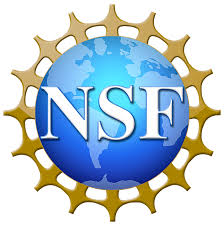


|
Division of Agricultural Sciences and Natural Resources, Oklahoma State University | Medicago truncatula Mutant Database | ||||
| Medicago truncatula Mutant Database |

|
||||
1. We plan to generate ~16,000 Tnt1 lines at the Noble Foundation by the year 2011. So far, we have generated more than 12,000 lines (named NF00001, etc.) with an average of about 25 Tnt1 inserts per line. We host an annual phenotype screening workshop. Over the past three years, 4400 lines have been phenotyped and are now described in the database. Please note that all phenotypes were recorded after 4-5 weeks of growth on low concentrations of N (nitrate) and P (phosphate) to promote nodulation and nitrogen-fixation by rhizobia and mycorhrization by fungi, respectively.
2. We generated flanking sequence tags (FSTs) by inverse PCR or TAIL-PCR followed by Sanger sequencing. These FSTs are BLAST-searchable against your gene-of-interest. Most of the FSTs start with a 7-bp Tnt1 end signature (CCCAACA) which enables assignment of the exact insertion site of each transposon. Note that these Tnt1 lines were generated in R108 genetic background, which means the FST sequences may not match exactly Medicago truncatula GeneBank sequences derived from Jemalong A17. So far, we have generated over 12,000 FST data from about 1100 lines. Therefore, the majority of lines in this database are currently without FSTs.
3. Also included in the database are some Tnt1 lines generated by our collaborator Dr. Pascal Ratet at the CNRS, France (line names starting with F or SO in the Jemalong 2HA background and the line names starting with D or Tnk in the R108 background). FSTs from these lines were generated using an adaptor-ligation approach followed by Sanger sequencing.
4. Most pictures contain two or more plants, one of which is a wild type-like sibling from the same line that can be considered as a control.

You may click here to download all FSTs in the database. (This data set is available on collaboration basis. Please contact with Dr. Randy Allen or Dr. Jiangqi Wento get access password.)